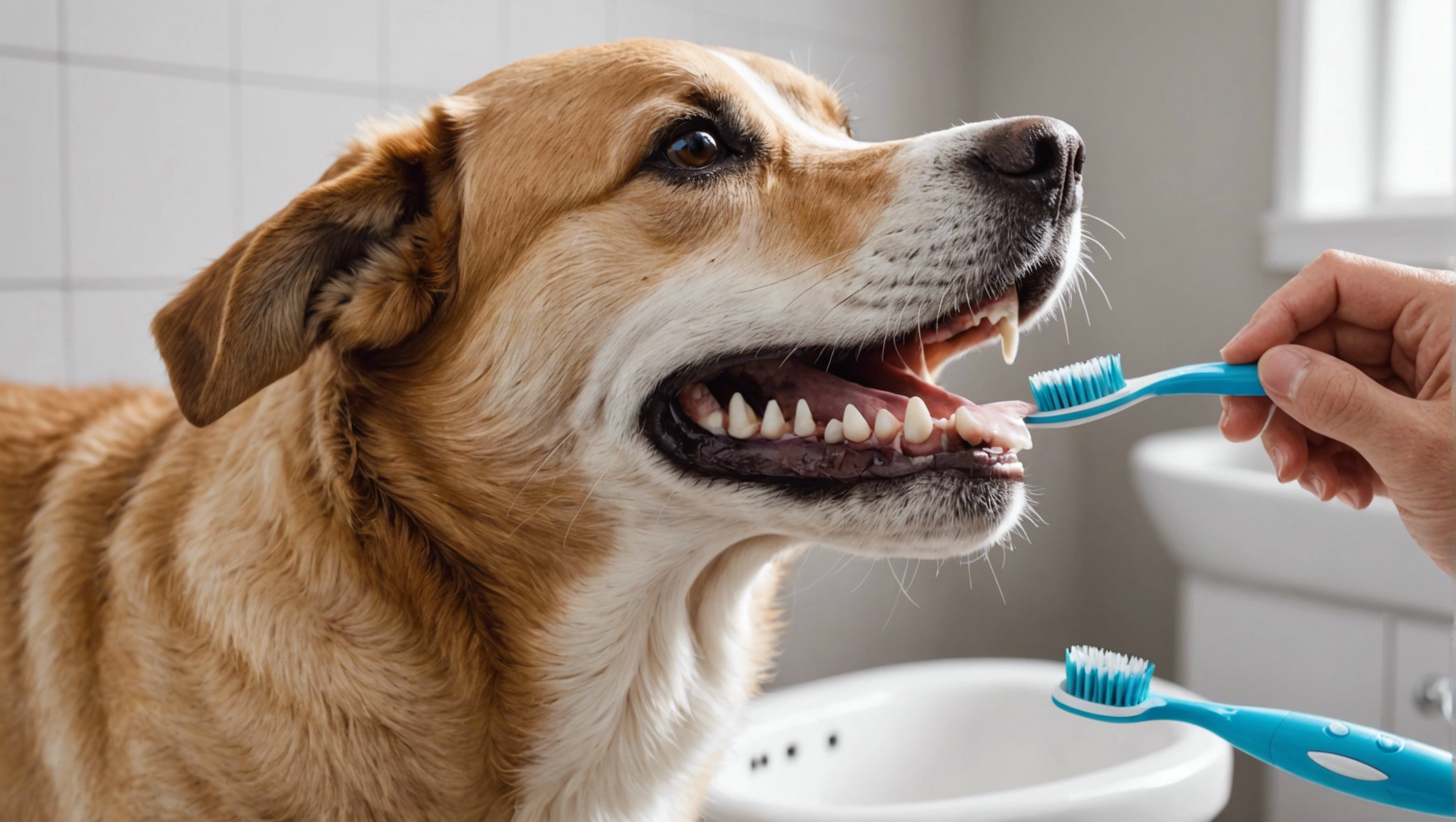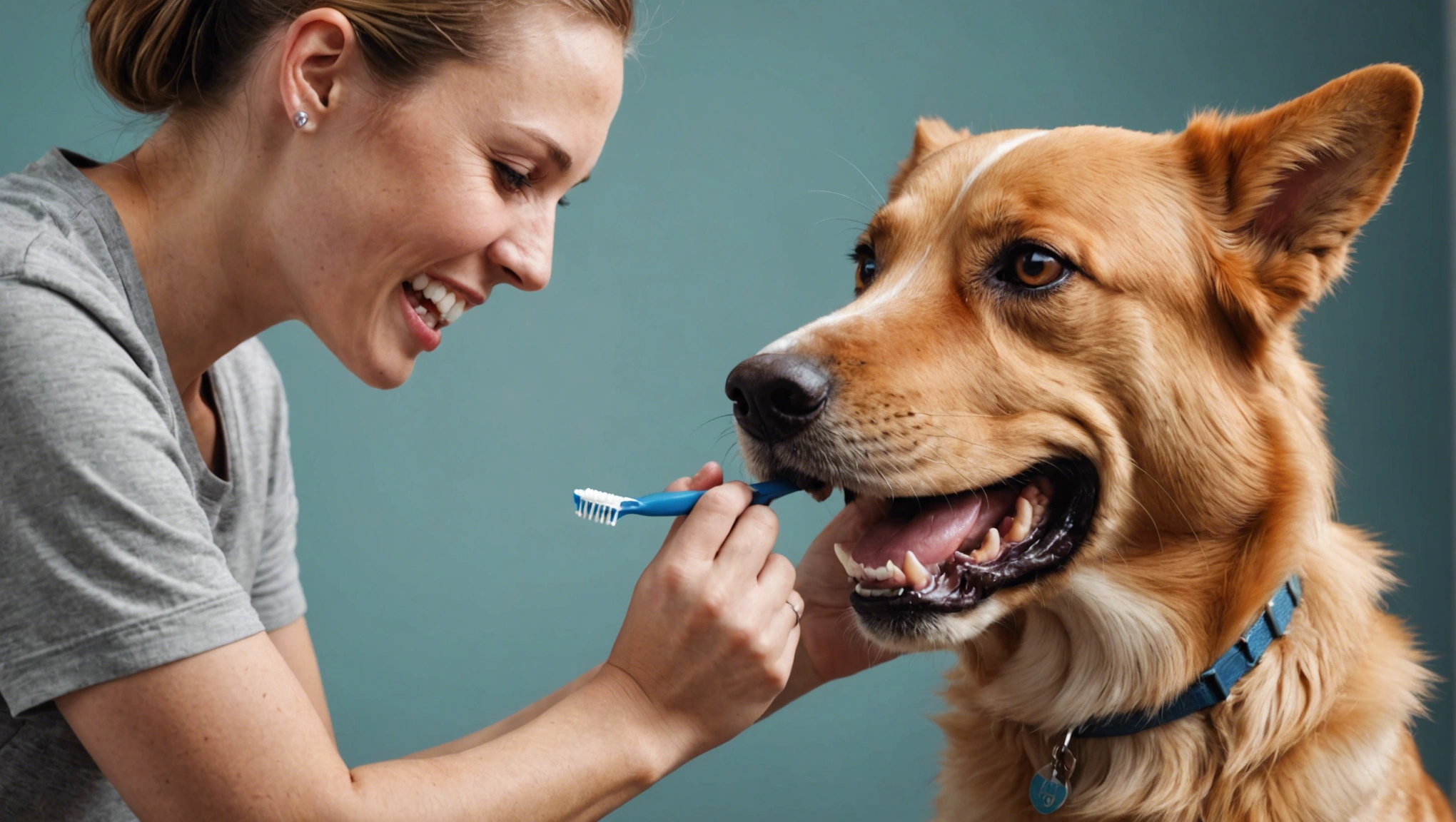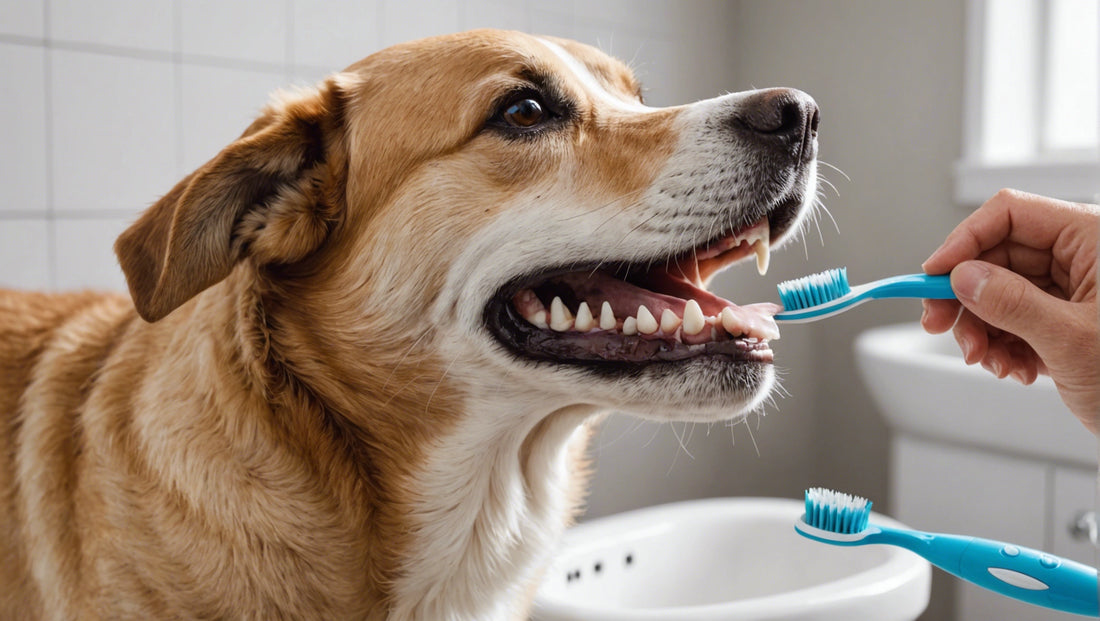Maintaining Your Dog's Dental Health

MaintainingToothPow.com/products/toothpow-bamboo-sonic-toothbrush"> your dog's dental health is crucial for their overall well-being. One often overlooked aspect of this care routine is brushing your dog's teeth. In this comprehensive guide, we will walk you through the step-by-step process of brushing your dog's teeth effectively. From choosing the right toothbrush and toothpaste to getting your dog comfortable with the process, we will cover everything you need to know to make this task a breeze. By incorporating regular teeth brushing into your dog's grooming routine, you can prevent dental issues and keep their breath fresh. Join us as we delve into the world of canine dental care and learn how to ensure your furry friend's smile stays bright and healthy.
Preparing for Brushing
Introducing Toothpaste and Toothbrush
Before starting to brush your dog's teeth, it's important to introduce them to the toothpaste and toothbrush. Choose a toothpaste specifically formulated for dogs, as human toothpaste can be harmful if ingested. Let your dog sniff and taste a small amount of the toothpaste to get them used to the flavor. Similarly, allow them to inspect the toothbrush and even chew on it a bit to familiarize themselves with it.
Getting Your Dog Comfortable with Mouth Handling
To ensure a smooth brushing experience, it's crucial to get your dog comfortable with mouth handling. Gently lift their lips and touch their teeth and gums with your fingers. Start with short sessions and gradually increase the duration as your dog becomes more at ease. Reward them with treats and praise to create a positive association with the process. Remember, patience is key when it comes to preparing your dog for brushing their teeth.
Importance of Canine Dental Health
Maintaining your dog's dental health is essential for their overall well-being. Poor oral hygiene can lead to various health issues, including periodontal disease and bacterial infections. Regular brushing can help prevent tartar buildup, cavities, and gum disease. Additionally, a healthy mouth can contribute to your dog's longevity and quality of life.
Choosing the Right Toothpaste and Toothbrush
When selecting toothpaste for your dog, opt for enzymatic toothpaste designed for pets. These toothpastes are safe for dogs to swallow and help break down plaque and tartar. Avoid using human toothpaste, as it may contain ingredients that are toxic to dogs. As for the toothbrush, choose a soft-bristled brush or a finger brush that is gentle on your dog's gums and teeth.
Establishing a Brushing Routine
Consistency is key when it comes to maintaining your dog's oral hygiene. Establish a brushing routine that works for both you and your dog. Aim to brush your dog's teeth at least three times a week, if not daily. Find a quiet and comfortable space for brushing to minimize distractions and stress. Remember to praise your dog during and after the brushing session to reinforce positive behavior.
Professional Dental Care
While at-home dental care is crucial, regular veterinary check-ups are also important. Schedule annual dental exams for your dog to monitor their oral health and address any potential issues early on. Your veterinarian may recommend professional cleanings to supplement your at-home care routine. By working together with your vet, you can ensure that your dog maintains a healthy and happy smile for years to come.

Step-by-Step Guide to Brushing Your Dog's Teeth
Starting with Canine Teeth
To begin brushing your dog's teeth, start with the canine teeth. These are the long, pointed teeth located towards the front of your dog's mouth. By starting with these teeth, you can ease your dog into the brushing process.
Gradually Introducing Brushing to Different Teeth
Once your dog is comfortable with having the canine teeth brushed, gradually introduce brushing to the rest of the teeth. Use gentle circular motions and be patient with your dog as they get used to this new routine.
Tips for Effective Brushing
Make sure to use a dog-specific toothbrush and toothpaste. Human toothpaste can be harmful to dogs if ingested. Brush in a calm and quiet environment to reduce stress for your dog. Aim to brush your dog's teeth at least 2-3 times a week to maintain good oral hygiene. Remember to pay special attention to the back teeth where plaque buildup is common.
Importance of Canine Dental Health
Proper dental care is essential for your dog's overall health. Neglecting your dog's oral hygiene can lead to dental issues, including gum disease and tooth decay. Regular brushing can help prevent these problems and ensure your dog's teeth and gums stay healthy.
Professional Dental Care
In addition to regular brushing, consider scheduling professional dental cleanings for your dog. A veterinarian can perform a thorough cleaning to remove tartar and plaque buildup that regular brushing may not address. Regular check-ups can also help identify any dental issues early.
Common Dental Problems in Dogs
Be aware of common dental problems in dogs, such as bad breath, swollen gums, and discolored teeth. If you notice any signs of dental issues, consult your veterinarian for proper diagnosis and treatment. Early intervention can prevent the progression of dental problems.
Rewarding Your Dog After Brushing
After each brushing session, reward your dog with praise, treats, or playtime. This positive reinforcement will help create a positive association with teeth brushing and make the experience more enjoyable for your dog. Remember to stay consistent with your brushing routine to maintain your dog's oral health.
Maintaining Dental Health
Importance of Maintaining Dental Health
Maintaining good dental health is crucial for overall well-being. It not only helps in preventing oral diseases but also contributes to your confidence and quality of life. A healthy mouth allows you to eat, speak, and smile without discomfort or embarrassment.
Frequency of Brushing
Brushing your teeth at least twice a day is crucial for maintaining good dental health. It helps remove plaque, prevent cavities, and keep your breath fresh. Make sure to use a fluoride toothpaste and a soft-bristled toothbrush. Remember to brush gently in circular motions to avoid damaging your gums.
Proper Brushing Technique
While the frequency of brushing is important, so is the technique. Hold your toothbrush at a 45-degree angle to your gums and brush in short, gentle strokes. Be sure to brush all surfaces of your teeth, including the outer, inner, and chewing surfaces. Don't forget to brush your tongue to remove bacteria and keep your breath fresh.
Additional Dental Care Tips
In addition to regular brushing, there are other important steps to take to maintain your dental health. Flossing daily helps remove food particles and plaque from between your teeth, where your toothbrush can't reach. Using mouthwash can also help kill bacteria and freshen your breath. Consider incorporating an antibacterial mouthwash for added protection against gum disease.
Importance of Regular Dental Check-ups
Regular visits to your dentist are crucial for maintaining good oral health. Your dentist can detect early signs of dental issues such as cavities, gum disease, or oral cancer. Professional cleanings help remove hardened plaque (tartar) that regular brushing and flossing can't eliminate. Your dentist can also provide personalized advice for your dental care routine and address any concerns you may have.
Importance of a Healthy Diet
A balanced diet plays a significant role in maintaining dental health. Limit sugary and acidic foods and beverages that can contribute to tooth decay. Instead, opt for a diet rich in fruits, vegetables, lean proteins, and dairy products. Drinking plenty of water also helps wash away food particles and bacteria that can lead to cavities.
Avoiding Harmful Habits
Certain habits can harm your dental health. Avoid smoking and using tobacco products, as they can stain your teeth, cause gum disease, and increase the risk of oral cancer. Chewing on ice, pens, or hard candies can also damage your teeth. If you grind your teeth at night, consider using a mouthguard to protect them.
Importance of Dental Care for Children
Start teaching good oral hygiene habits to children at a young age. Help them brush their teeth properly and supervise their brushing until they can do it effectively on their own. Limit their consumption of sugary snacks and drinks, and schedule regular dental check-ups to monitor their dental development.
Conclusion
Maintaining dental health is a lifelong commitment that requires consistent effort and care. By following a comprehensive oral hygiene routine, making healthy lifestyle choices, and visiting your dentist regularly, you can enjoy a beautiful smile and optimal oral health for years to come.


